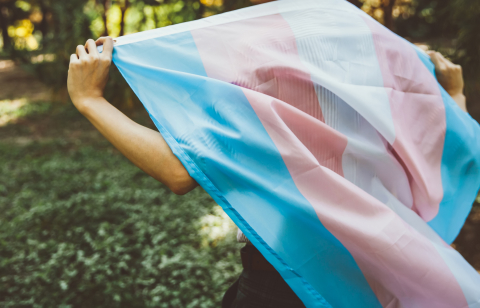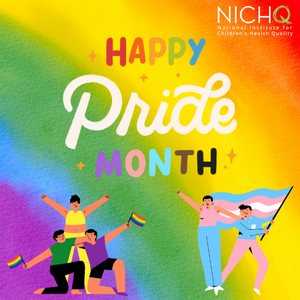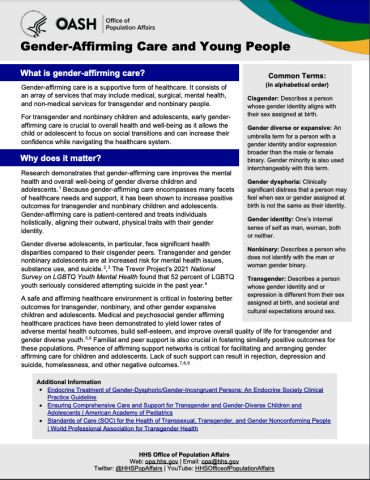
Support and Pride
Each year, Pride is a time of combined learning, celebration, and working toward a future where children, adolescents, and adults who identify as two-spirit, lesbian, gay, bisexual, transgender, queer, intersex, and asexual (2SLGBTQIA+) achieve their optimal health. Public health professionals play a key role in raising awareness of this group of kids with special healthcare needs, as well as in the advocacy for continued access to healthcare.

Healthcare Providers Can Improve 2SLGBTQIA+ Youth Mental Health
Despite increasing public awareness and evidence-based recommendations, children who identify as two-spirit, lesbian, gay, bisexual, transgender, queer, intersex, and asexual, (or gender-diverse as a broader term) often lack adequate gender-affirming healthcare, including access to mental health resources.
To assist pediatricians and parents in providing care for LGBTQIA youth, The American Academy of Pediatrics published a policy statement, "Ensuring Comprehensive Care and Support for Transgender and Gender-Diverse Children and Adolescents.
Read SAMHSA's recent post, "LGBTQI+ Youth -- Like All Americans, They Deserve Evidence-Based Care"

NICHQ's Commitment to Gender Equity
As an equity-focused public health organization, NICHQ remains dedicated to serving groups marginalized by systems. We have made an explicit commitment to racial equity and have been examining our internal and external work, structures, and language. While gender identity and expression is an expanding part of our equity journey, it is an important component to holding space for intersectional identities.
Learn more about our philosophy and approach to language in the field of maternal and child health, and read our recent Insight, Exploring a Nonbinary Approach to Health, written by Heidi Brooks, NICHQ's Chief Operating Officer.

Resources for Families
Parents and caregivers of gender-diverse children often face additional challenges as they help their children deal with uncertainty and navigate systems of care, schools, extended families, sibling relationships, and the world around them.
The American Academy of Pediatrics recommends parents make their home a place where their child feels safe and loved unconditionally for who they are. In a comparative study published in Pediatrics, higher rates of family rejection were significantly associated with poorer health outcomes, including attempted suicide and high levels of depression compared with peers from families that reported no or low levels of family rejection.
Gender-Affirming Care: Children
What is gender-affirming care and what is available to transgender and nonbinary children and adolescents? Learn more in this PDF from the HHS Office of Population Affairs.
Below are helpful resources for parents and families of gender-diverse youth:

Gender-Affirming Care: Adults
For many transgender, nonbinary, and gender-expansive (TGE) people, the best sources of information about conception, accessing care, and dealing with lactation and chestfeeding have been informal networks of people with similar experiences. Read an article highlighting strategies to help clinicians and other health professionals better meet the needs of TGE people during pregnancy.

Mark Your Calendars
In addition to Pride Month, NICHQ is proud to recognize the following awareness days:
- Nonbinary Parents Day - April 21
- Nonbinary Awareness Week - July 8-July 14
- National Coming Out Day - Oct. 11
- International Pronouns Day - Oct. 20
- Intersex Awareness Day - Oct. 26
- Transgender Awareness Month - November
- Transgender Parent Day - Nov. 6
- Transgender Day of Remembrance - Nov. 20

